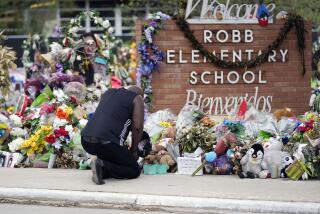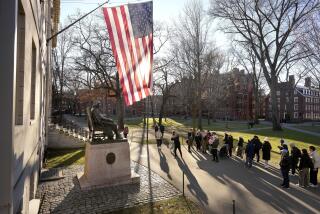Lawsuits blame Facebook and Twitter in terror attacks in Paris, Brussels
The families of victims of terror attacks in Paris, Brussels and Israel are blaming social media companies including Facebook and Twitter for facilitating communications among terrorists.
Twitter says it has suspended hundreds of thousands of user accounts in the past 18 months for threatening or promoting acts of terrorism.
But that isn’t enough, say lawyers for the families of terror victims, including a brother and sister killed in last year’s bomb attacks in Brussels and an American college student who died in Paris.
In a string of lawsuits filed in New York, they say they want Twitter and Facebook to pay damages for failing to stop violent extremists from using their platforms to recruit followers, intimidate enemies and raise money.
“If you or I tried to send money to Hamas, you wouldn’t get around the block,” said Robert Tolchin, a lawyer for the families of Brussels attack victims Alexander and Sascha Pinczowski and Paris massacre victim Nohemi Gonzalez. “Banks are required to check before they do any wire transfers. Why is it any different to provide a communications platform to Hamas, to ISIS?”
Relatives of those three victims filed a federal lawsuit against Twitter earlier this month, saying the San Francisco company violated the U.S. Anti-terrorism Act by providing material support to terrorists. It seeks unspecified damages.
Another lawsuit filed last year on behalf of five people killed or injured in terror attacks linked to Hamas blames Facebook Inc., saying it provides material support to Hamas.
The plaintiffs include the families of Taylor Force, a Lubbock, Texas, native and Vanderbilt University student stabbed to death in Tel Aviv last March; Yaakov Naftali Fraenkel, a 16-year-old dual Israeli-American citizen kidnapped and killed in Israel in 2014; and 3-month-old Chaya Zissel Braun, who was killed in 2014 when a Hamas operative drove his car into a crowd at a train station in Jerusalem.
That suit was combined with a third lawsuit brought on behalf of 20,000 Israelis seeking a court order requiring Facebook to stop providing services to terrorists.
Similar lawsuits across the country have been rejected by courts on grounds that the companies are protected by the Communications Decency Act, which bars social-networking companies from being sued for speech used by their customers.
“I’m confused why new lawsuits are continuing to be filed because I think these lawsuits are unmeritorious and it seems like the plaintiffs are not directing their ire toward the proper targets,” said Eric Goldman, a professor at the Santa Clara University School of Law. “Many social media companies have taken extra steps above and beyond the law to further reduce terrorist content.”
In court papers, Facebook is fighting back, saying the material support claim is not new and it’s been routinely dismissed in court.
“Facebook has zero tolerance for terrorism,” the Cupertino, Calif.-based company wrote. “It condemns terrorist actions, prohibits terrorist content on Facebook, and swiftly removes any reported terrorist content.”
Twitter said in a statement that it condemns the use of it services to promote terrorism.
“This type of behavior, or any violent threat, is not permitted on our service,” it said, adding that it has suspended over 360,000 accounts in the last 18 months for promoting violent extremism, primarily related to the Islamic State.
For legal support, Twitter cites a November ruling of a U.S. court in San Francisco in a case brought by relatives of two U.S. government contractors shot and killed in 2015 at a law enforcement training center in Amman, Jordan. U.S. District Judge William H. Orrick said the suit was barred by the Communications Decency Act.
Alexander Pinczowski, 29, and Sascha Pinczowski, 26, were Dutch siblings who lived in New York. They died when suicide bombers detonated explosives at a Brussels airport.
Nohemi Gonzalez, 23, was among 129 people killed by gunmen in Paris in 2015. She a student at Cal State Long Beach and had been spending a semester in Paris studying industrial design.
ALSO
Qualcomm is accused of anti-competitive tactics
Snapchat has changed Venice, and the neighborhood isn’t changing back
WhatsApp’s privacy woes show how messaging app tries to balance security and ease of use






